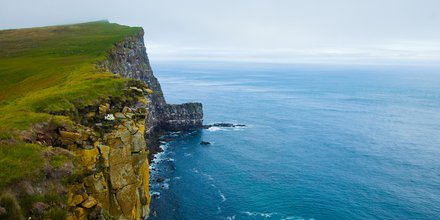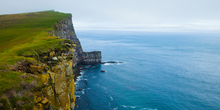Water, Marine & Fisheries
Our Work
Latest in Marine Policy
-

Socio-economic benefits of EU Marine Protected Areas
They are more than just a nature conservation tool – a study by IEEP shows how EU Marine Protected Areas help to maintain and improve the provision of a wide range of ecosystem services and related socio-economic benefits.
-
Benefits of marine protected areas in the context of EU’s Natura 2000 network
A scoping study by IEEP outlines a step-wise methodology to assess the overall benefits provided by the EU’s marine Natura 2000 network.
-
New open access book on marine litter
A new book, 'Marine Anthropogenic Litter', has been published comprising 16 chapters on various aspects of the complex issue of litter in the world’s oceans. Researchers from IEEP contributed a chapter on the economics of marine litter. The whole book is free to view online.
-
Paper on the challenges of taking account of long timescales in the management of Europe’s regional seas
There many physical, biological and social characteristics of marine systems which are slow to change. Understanding these is important if marine managers are to develop effective targets and measures to deliver environmental improvements.
-
The Manual: Chapter 5 - Water and marine
This is a chapter of IEEP’s Manual of European Environmental Policy. In this chapter the development of EU water pollution policy is explored, including the Water Framework Directive, the Marine Strategy Framework Directive, and other directives and policies covering flooding; water scarcity; and dangerous substances in water.
-
The Manual: Chapter 13 - Sectoral policies
This is a chapter of IEEP’s Manual of European Environmental Policy. This chapter sets out the development of some of the most important links between EU environmental policy and other policy areas, such as agriculture, forestry, fisheries, transport, trade, and so on.
-
Challenges of achieving good environmental status in the Black Sea
Achieving Good Environmental Status in the Black Sea is particularly challenging due to governance structure. This paper explores this in relation to eutrophication and fisheries management.
-
Environmental policy and the UK’s review of the EU Balance of Competences
The UK Government’s Balance of Competences review has now taken evidence on 25 subject areas, including the 6 with the most relevance for the Environment. We take stock of the IEEP’s contributions, and consider what a possible UK renegotiation might mean for the environment.
-
40 years of cooperation in protecting the Baltic Sea
IEEP’s Marianne Kettunen gave a presentation at the Helsinki Convention (HELCOM) Jubilee Session on the understanding and valuation of marine ecosystem services, Helsinki, 5 Mar 2014.
-
Understanding and valuing ecosystem services provided by the Baltic Sea
IEEP’s Marianne Kettunen outlined key perspectives on the valuation of coastal and marine ecosystem services in a regional workshop on the Valuation of Marine and Coastal Ecosystem Services in the Baltic Sea, Stockholm (7-8 Nov 2013)
-
Biodiversity proofing of the EU budget
This study shows how more can be done to firstly avoid and minimize detrimental impacts of EU funding on biodiversity, and secondly to increase biodiversity benefits.
-
The Ecosystem Approach in Marine Management
The Marine Strategy Framework Directive requires Member States to apply an “ecosystem approach to marine management”. This report defines the ecosystem approach and puts it into context by describing the challenges of applying it across Europe’s seas.
Highlights
-

Socio-economic benefits of EU Marine Protected Areas
They are more than just a nature conservation tool – a study by IEEP shows how EU Marine Protected Areas help to maintain and improve the provision of a wide range of ecosystem services and related socio-economic benefits.
-

Benefits of marine protected areas in the context of EU’s Natura 2000 network
A scoping study by IEEP outlines a step-wise methodology to assess the overall benefits provided by the EU’s marine Natura 2000 network.
